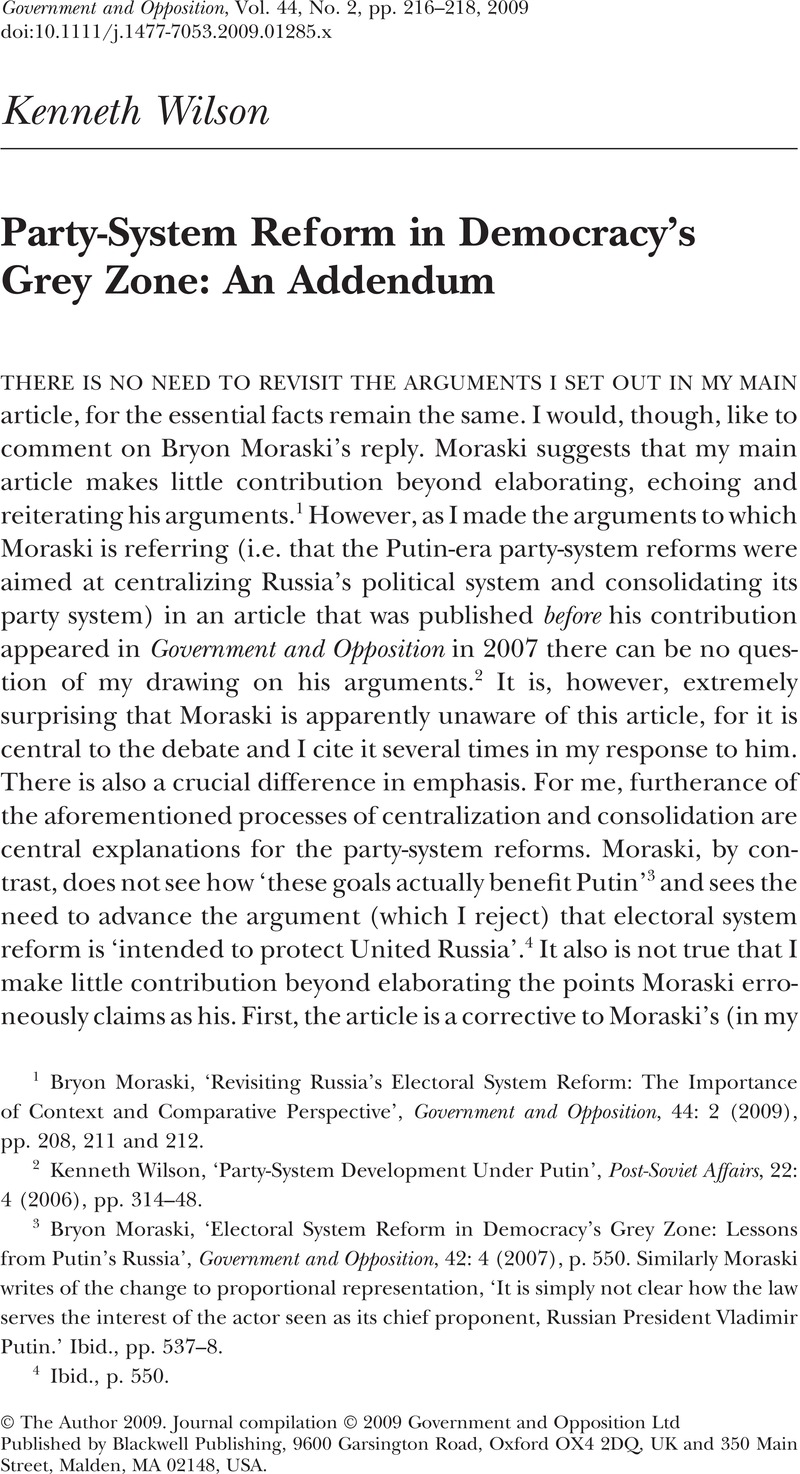No CrossRef data available.
Article contents
Party-System Reform in Democracy's Grey Zone: An Addendum
Published online by Cambridge University Press: 02 January 2013
Abstract

- Type
- Articles
- Information
- Copyright
- Copyright © The Author(s) 2009.
References
1 Moraski, Bryon, ‘Revisiting Russia's Electoral System Reform: The Importance of Context and Comparative Perspective’, Government and Opposition, 44: 2 (2009), pp. 208, 211 and212.CrossRefGoogle Scholar
2 Wilson, Kenneth, ‘Party-System Development Under Putin’, Post-Soviet Affairs, 22: 4 (2006), pp. 314–48.CrossRefGoogle Scholar
3 Moraski, Bryon, ‘Electoral System Reform in Democracy's Grey Zone: Lessons from Putin's Russia’, Government and Opposition, 42: 4 (2007), p. 550.CrossRefGoogle Scholar Similarly Moraski writes of the change to proportional representation, ‘It is simply not clear how the law serves the interest of the actor seen as its chief proponent, Russian President Vladimir Putin.’ Ibid., pp. 537–8.
4 Ibid., p. 550.Google Scholar
5 Moraski, ‘Revisiting Russia's Electoral System Reform’, p. 212.Google Scholar
6 Moraski, ‘Electoral System Reform in Democracy's Grey Zone’, p. 542.Google Scholar
7 Wilson, Kenneth, ‘Party-System Reform in Democracy's Grey Zone: A Response to Moraski’, Government and Opposition, 44: 2 (2009), pp. 191–3.Google Scholar
8 Moraski, ‘Revisiting Russia's Electoral System Reform’, p. 208.Google Scholar
9 My main article makes several points along these lines, including pointing out elementary factual errors.Google Scholar
10 Moraski, ‘Revisiting Russia's Electoral System Reform’, p. 209.Google Scholar
11 Moreover, Moraski's evidence for this – a single, obscure internet source – is very weak.Google Scholar
12 This observation is not made only with the benefit of hindsight. In my work published before the 2007 election I anticipated that the regime would, as in 2003, engineer a victory for pro-Kremlin parties in 2007. Wilson, ‘Party-System Development Under Putin’, pp. 341–2.Google Scholar
13 Moraski, ‘Revisiting Russia's Electoral System Reform’, p. 211.Google Scholar


